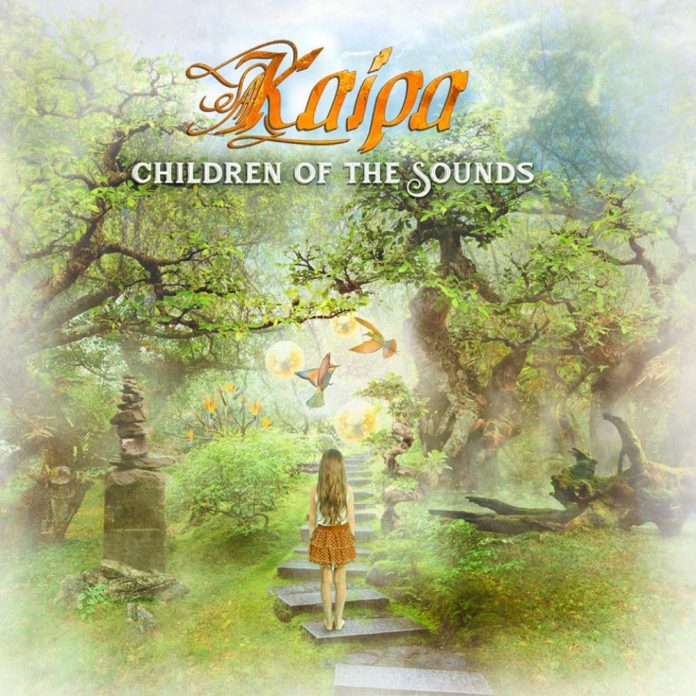Is it possible to be a big fan of a band, but not feel strongly about any of their songs? I’ve listened through every album Swedish prog rock band Kaipa has released since their resurrection in 2002 (the group was founded in 1974, but with an almost entirely different lineup, and most of their songs performed in Swedish), and they’re one of the few bands I almost never skip when they come up in my shuffled playlist. But if you told me you wanted to try listening to them and asked where to start, I’d stutter and eventually say “anywhere.”
That’s because you can pick a song at random and get the full Kaipa experience, and their new album, Children of the Sounds, is no different. Their songs check off all the boxes I like: multiple singers working in unison, complex song structures, weird but fun lyrics, a unique and memorable sound — but that sound of theirs is almost too uniform. This is their eighth modern album, and I’m not sure if there’s been any evolution or change during the past 15 years. I can tell their songs apart, but that isn’t a qualification I should have to list on a band I count among my favourites.
Children of the Sounds only consists of five songs, but it still clocks in at 58 minutes, with the shortest track running almost seven, and the longest nearly 20. It’s definitely not for everyone, either — this is exactly the kind of music that, before I fell down the prog-rabbit hole, I’d laugh when I heard. It’s very over the top, and doesn’t take itself too seriously.
In fact, the tone of the music might be one of the reasons that Kaipa’s very well-defined sound clicks with me. Despite all the complex melodies, changing time signatures, and lyrics that range from mundane day-in-the-life, to fantasy worlds, to weird-I-don’t-know-what-this-is-about ramblings, of the nearly 80 Kaipa songs in my playlist, I cannot think of a single one that’s dreary, depressing, or even negative. It’s just plain fun, and even the slow songs have a hopeful, optimistic slant to them. The shortest song on Children of the Sounds, “The Shadowy Sunlight,” may contain the closest thing to a somber song I’ve ever heard from the band, and it’s not exactly brooding.
Kaipa is like musical comfort food, the prog rock version of a poppy top 40 feel-good song, and Children of the Sounds is just another big helping. It’s exactly what I want on in the background while I work, it’s great driving music, and I don’t know if I could name a single song from the modern iteration of the band that I dislike.
If I had to rank the album, I’d say it falls a little short of some of Kaipa’s other releases in recent years, if only because none of the songs highlight the vocal talent of Aleena Gibson the way some past work has, with this album focusing more on the male singers, or harmonized lyrics. It also doesn’t have many lyrics that jump out at you the way some past songs like “A Universe of Tinyness” from 2012’s Vittjar, do. And when the lyrics do stand out, it isn’t always because they’re great — I know this group is capable of better than “roving down my winding road / I don’t need a secret code / to unfold this piece of art / so emotional inside my heart.”
That said, if you want something fun, light, and very different, I wouldn’t hesitate to recommend checking out Kaipa. Should you start with Children of the Sounds? Honestly, it doesn’t matter. Listen to any three songs of theirs, and you’ll know exactly what you’ll think of the rest. Personally, I happen to like them.
Jeff was The Cascade's Editor in Chief for the latter half of 2022, having previously served as Digital Media Manager, Culture & Events Editor, and Opinion Editor. One time he held all three of those positions for a month, and he's not sure how he survived that. He started at The Cascade in 2016.



